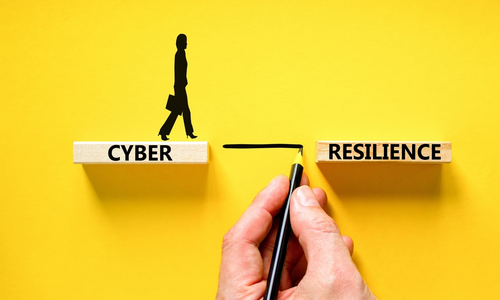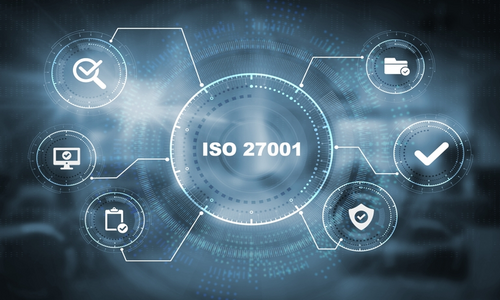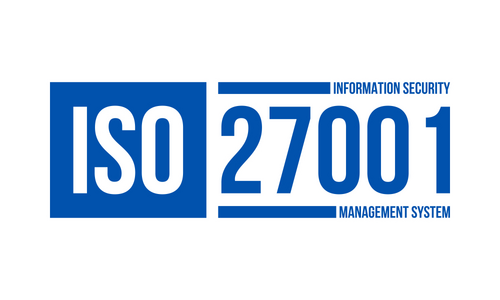It has become the norm of the day that personal information, including buying patterns and social media accounts, is shared across networks. This data is invaluable. But it also opens up very fundamental questions, especially on issues to do with privacy and security. In this regard, there is General Data Protection Regulation (GDPR), a regulation. It was established by the European Union in 2016. The GDPR increases the rights of consumers regarding their personal data and establishes stringent requirements for organizations working with it. Even though following GDPR regulations can be difficult at times, businesses are not faced with this challenge alone. A crucial figure stands at the forefront of data protection efforts: the Data Protection Officer (DPO). This appointed professional plays a central role in ensuring that entity operates within the provisions of the GDPR, as it is a very strict regulation.
Let’s dive into the critical role of a Data Protection Officer (DPO) and explore why this position is essential for businesses navigating the complex and ever-evolving data protection landscape.

Jump ahead to
What are the Key Responsibilities of a Data Protection Officer?
An organization’s GDPR compliance efforts depend highly on the Data Protection Officer (DPO). Some of these are:
Developing and Implementing Data Protection Strategies
- Data Protection Officer prepares and sets up the data protection policies and protocols as per GDPR standards. Such policies make it possible to acquire and manage data in compliance with legal requirements, equity, and openness.
- They also assist in setting policies relating to data storage, protection, and how to handle data breaches.
Ensuring Data Protection Awareness
- The DPO must ensure that they lead data protection awareness campaigns for employees. This may require regular training, developing the relevant information, and cultivating data accountability in the organization.
- Experience is one of the surest ways of ensuring that employees do not make errors that have implications for data and non-compliance.
Data Processing Activities and Risk Management
- It would be possible to state that the DPO supervises all processes of data processing in the organization. This discusses aspects such as the type of data that is gathered, how it is utilized, and who it is disclosed to.
- They may also perform DPIAs to identify risks connected with specified data processing operations. This has a preventive measure that assists in the protection of data and eliminates the possibility of break-ins into the database.
Data Subject Rights
- It is the duty of the DPO to assist the data subject with rights under General Data Protection Regulation. The following rights enable a person to manage his or her personal data.
- Data Protection Officer guarantees that the organization has the necessary procedure, which regulates data subjects’ requests. It includes access requests, rectification requests, and erasure requests, in place. They also advise and assist so that these rights can be honored in a timely and efficient manner.
DPO’s Role: Eligibility and Requirements
The GDPR is not some ‘‘one size fits all regulation”. It acknowledges the fact that there exist organizations that can maneuver through data with dexterity, and there are those that might require a guardian angel of some sort. Moreover, for those data-intensive organizations, the GDPR mandates a crucial role. The main actor in the data protection regulation is the Data Protection Officer (DPO).
One must consider the DPO as the organization’s guardian of the GDPR. Appointments are not prevailing all over the world in every organization, but after that, they become compulsory when there is critical data involved. Here’s when a DPO becomes a must-have:
- Data Deluge: As recommended, every company that is involved in the processing of individuals’ data requires a DPO to handle this data in a proper way.
- Sensitive Data Specialists: Storing medical records or political affiliations are examples of special categories of data; analysis entails providing the highest protection by a Data Protection Officer.
- Big Brother Organizations: Technical surveillance involving many employees or other similar massive surveillance processes draw the need for a DPO.
- Empowering the Workforce- Data Protection Awareness:
- Internal Champion: It is possible for an organization to promote an existing employee if they are full of the right skills for the new position.
- External Powerhouse: They can hire another more qualified EDP professional from outside to offer the services.
Here’s what makes a DPO a true GDPR Powerhouse
- Legal Eagle: For a professional to become a DPO, they require profound knowledge of data protection law, especially the GDPR.
- Tech-Savvy: They are aware of how data can be protected and of the details of all kinds of data operations.
- Master Communicator: A DPO also has a working relationship with employees, data subjects, and even the supervisory authorities.
The idea of a Data Protection Officer is not just a position but a very proactive advocate for data protection. They interpret legal legalisms into ways for an organization to operate effectively within the context of a fast-changing data protection environment. They establish data governance in the organization so that your organization can use data with care and accuracy. In particular, the DPO is the GDPR powerhouse, the perpetual guardian angel for any organization that wants to operate in the constantly evolving realm of data protection.
Roles and Responsibilities of the DPO
The general role of the Data Protection Officer (DPO) is crucial in the process of compliance with regulations in an organization. undefined
Building the Foundation: About Data Protection Strategies
- Developing and Implementing Policies: The DPO designs data protection policies in compliance with GDPR to guarantee that data is collected and processed in accordance with the legal requirements with equal balance and clarity for the data subjects. These are policies that provide the framework for how personal data should be managed.
- Defining Procedures: The DPO ensures everyone within the organization understands various aspects, such as data retention policies, security, and even the steps to take when encountering a data breach.
Empowering the Workforce: Data Protection Awareness
- Training and Education: It is the role of the DPO to lead the organization in creating employee awareness of data privacy through employee training and other information sharing methods.
- Fostering a Culture of Responsibility: The DPO is responsible for setting up an organizational culture that makes every stakeholder in the organization accountable for compliance with data protection.
Identifying Risks and Implementing Solutions: Collection, Analysis, and Management of Data
- Overseeing Data Processing Activities: The DPO is involved in all the data processing operations, ensuring that he or she knows what data is being processed, for what, and with whom.
- Conducting DPIAs: The DPO is a risk management consultant who is responsible for conducting DPIAs in order to identify risks to the protection of data.
- Mitigating Risks: As a result of DPIAs, the DPO then provides measures that are taken to address risks such as data breaches or unauthorized access.
DPO as a Liaison and Advocate
- Facilitating Data Subject Requests: Data Protection Officer is the connection between the organization and the data subjects. They guarantee that the organization implements a clean and clear manner of dealing with requests such as the right of access, the right to rectification, the right to erasure, and the right to restriction of processing.
- Respecting Individual Rights: The DPO also advises on how data subjects’ rights will be respected throughout the process in relation to meeting the requests on time.
Advantages of Hiring a Data Protection Officer
The DPO’s function cannot be limited to making sure all the compliance checklists are complete. Their efforts translate into tangible benefits for the organization:
Fort Knox for Data
A DPO is the guardian of your organization’s most valuable asset: its data. By implementing robust data protection strategies, the DPO acts as a fortress, shielding sensitive information from breaches, theft, and misuse. This not only safeguards your company’s reputation but also protects the trust of your customers and stakeholders. By proactively identifying vulnerabilities and implementing preventive measures, the DPO helps to minimize risks and ensure business continuity.
Compliance Confidence
With a DPO on board, organizations can deal with GDPR challenges. They guarantee compliance with the legal requirements on data protection, which minimizes the possibility of fines and legal consequences. By acting as a strategic advisor, the DPO helps organizations build a robust data protection framework, fostering trust with customers and employees alike. This proactive approach to data privacy not only safeguards sensitive information but also enhances the organization’s reputation as a responsible data steward.
Building Trust, One Byte at a Time
The protection of data helps organizations build and maintain integrity with their customers. Communication and an understanding of data subject rights show a good approach to handling data, thus improving customer relationships, which are essential for a DPO. By demonstrating a commitment to data privacy and security, businesses can foster a climate of trust, encouraging customer loyalty and advocacy. A DPO plays a pivotal role in this process, ensuring that data protection practices align with organizational goals and values.
Thus, they can be considered a key supporter of GDPR implementation, a protector of data, an enhancer of compliance activities, and a mediator between organizations and their stakeholders. Due to their commitment to the protection of data, they provide a foundation that allows proper protection of data in the future for organizations and individuals.
Conclusion
More than ever, Data Protection Officers are needed in today’s data-oriented society. As a result, the DPO serves as the main support for an organization’s GDPR compliance. They guarantee that data processed responsibly from its creation to its disposal. They implement sound data protection policies, ensuring that employees are informed, managing data protection risks, and supporting data subjects’ rights.
Thus, by fulfilling these duties, Data Protection Officer contributes to the development of organizational data protection culture. This not only reduces the chances of having a data breach and expensive fines, but also fosters the relationship between the company and the consumers. In today’s big data world, a brilliant DPO is the behind-the-scenes warrior that leads the organization to the future of correct data processing. Enrolling in Certified Data Protection Officer Training equips you with essential knowledge of data protection principles and practices. This knowledge allows you to become DPO.
FAQs
What is a DPO?
A Data Protection Officer (DPO) is a designated person within an organization who is responsible for overseeing compliance with the General Data Protection Regulation (GDPR) or similar data privacy regulations. They act as the champion for data privacy within the organization.
When is it mandatory to appoint a DPO?
The GDPR doesn’t mandate a DPO for all organizations. However, it becomes mandatory for organizations that:
- Process personal data on a large scale
- Process special category data
- Monitor individuals extensively.
List out the key responsibilities of a DPO?
- Develop and implement data protection strategies
- Raise employee awareness about data protection best practices
- Oversee data processing activities and conduct DPIAs
- Manage data subject rights requests
- Act as a liaison between the organization, data subjects, and supervisory authorities.
What skills and experience are necessary for a DPO?
- Strong understanding of data protection law (e.g., GDPR)
- Technical knowledge of data security practices
- Excellent communication and interpersonal skills
- Ability to translate legal requirements into practical measures.
What are the benefits of having a DPO?
- Enhanced data security and compliance
- Reduced risk of data breaches and fines
- Increased trust and transparency with customers
- Fosters a culture of data privacy within the organization.
Can a small business benefit from having a DPO?
Even small businesses that aren’t legally required to appoint a DPO can benefit from having someone oversee data protection practices. This can help them minimize risks, build trust with customers, and prepare for potential future regulations.
What are the future trends for DPOs?
With data privacy regulations evolving globally, the role of the DPO is likely to become increasingly important. We might see a rise in specialized DPO training programs and increased demand for DPO services.



